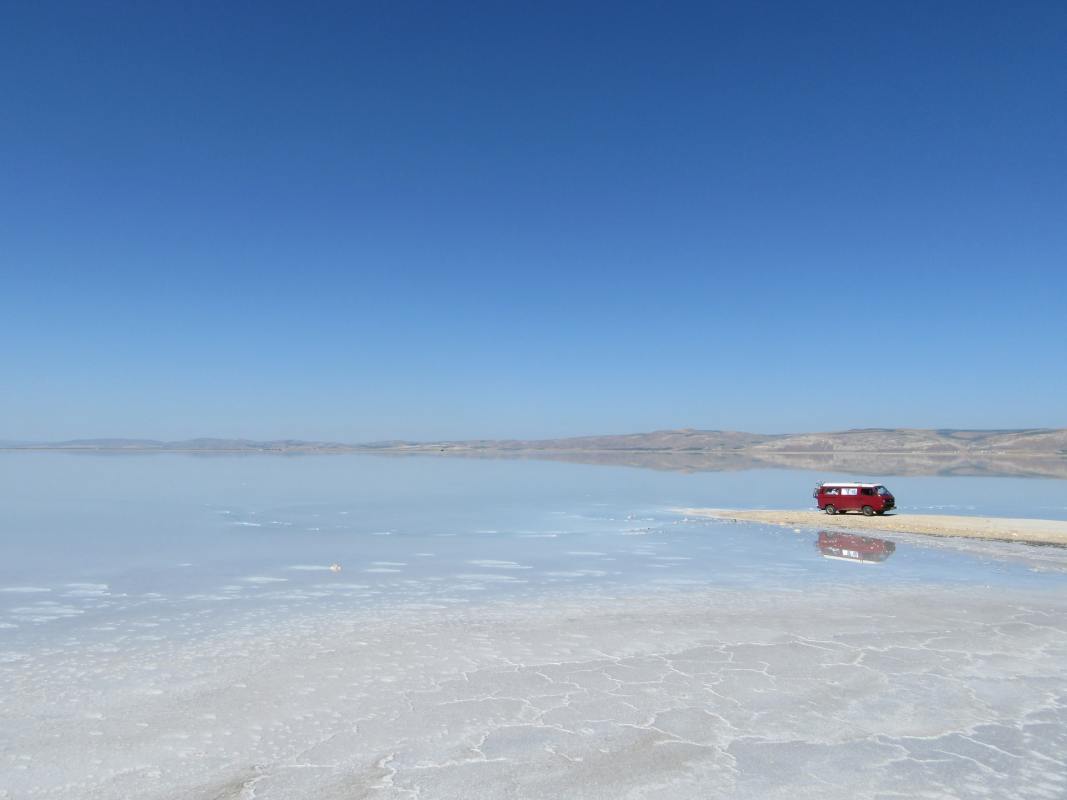One of the paradoxes of climate change is its wildly disparate effects on different parts of the world. As temperatures increase and ecosystems shift, some bodies of water are encroaching even more on the land. In other cases, though, bodies of water are growing smaller and smaller. Earlier this year, this played out in California, where droughts dried up the route that many salmon take when migrating. Now, on the other side of the globe, another body of water that’s home to distinctive wildlife also faces an existential crisis.
This news comes via Earther, where Molly Taft explains why Turkey’s Lake Tuz has dwindled from a well-known salt lake to — as Taft describes it — “a few puddles.”
Climate change played a significant part in the lake shrinking, but it’s not the only factor at work here. Agriculture also resulted in the lake’s levels of water dropping — though in this case, that could also be attributed to climate change. If the temperature is less hospitable to growing crops, bringing in more water can be away to address that — right up until the point when the lake itself begins to go dry.
In the past, Lake Tuz has drawn international attention for the number of flamingos that have gone there to breed in years past. This year, the flamingos returned — but found a harsh landscape awaiting them, leading to a massive number of dead birds.
As the article points out, what happened to Lake Tuz is harrowing in and of itself — but it’s also indicative of larger issues facing similar bodies of water around the world.
Thanks for reading InsideHook. Sign up for our daily newsletter and be in the know.


















